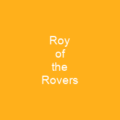Shamrock Rovers: A Tale of Triumph and Turmoil
Imagine a club that has been a cornerstone of Irish football since its inception, with a rich history spanning over a century. Shamrock Rovers Football Club, based in Tallaght, South Dublin, is not just a team; it’s a legend. Founded in 1901 (or possibly 1899), this club has seen the highs and lows of Irish football, from its early days to its current status as one of Ireland’s most successful teams.
The Early Years: A Resilient Spirit
Shamrock Rovers’ journey began in 1915 when they won the Irish Junior Cup. But their story is not just about victories; it’s also a tale of resilience and rebirth. The club disbanded during World War I but was resurrected in 1921, emerging as a powerhouse in Leinster Senior League football. By 1949, they had established themselves as Ireland’s most successful club with 44 major trophies.
Golden Era: The Coad and Thomas Years
The 1950s saw the rise of Paddy Coad, who became player-manager in November 1949. Under his leadership, Shamrock Rovers implemented a radical youth policy, signing an entire schoolboy international side to the club. The team won two more league titles and two FAI Cups under Coad’s tenure.
After Coad’s departure in 1960, Seán Thomas took over and rebuilt the team into a formidable force. By the end of their fifth season, they had won three League titles and one FAI Cup, solidifying their status as Ireland’s premier club.
The Decline and Rise: A Journey Through Turmoil
Shamrock Rovers faced a significant decline in the 1970s. After losing to Shelbourne in the 1970 FAI Cup, they narrowly missed out on the League title in 1970-71. The Kilcoynes, who had invested heavily in the club, sold it off and replaced key players with junior ones. Despite these challenges, the club managed to win a League title under Seán Thomas in 1983.
Jim McLaughlin’s arrival in 1984 brought a talented squad that won four consecutive titles from 1984 to 1987. However, the Kilcoynes sold Glenmalure Park in 1987, leading to a boycott of the team and eventual sale to John McNamara.
Modern Era: A New Chapter
In 2005, Shamrock Rovers entered examinership due to debts over two million Euros. The 400 Club agreed to bankroll the club during this process, saving them from extinction. Under Pat Scully’s management in 2006, they won promotion and achieved stability at Tolka Park until 2009 when they completed their stadium.
The club’s European success came after losing their league title to Shelbourne. In 2011, Shamrock Rovers played their first Champions League game, beating Flora Tallinn but losing to Copenhagen and then defeating FK Partizan. They won the All Ireland Setanta Sports Cup in 2011 and the league title again until Bradley’s era began.
Current Success: A Bright Future
Shamrock Rovers retained their title in 2021 despite losing star players. In 2022, they won their third league title in a row, equalling the record of four league championships set by the club in the 1980s. They also qualified for the group stages of the UEFA Conference League and had an average attendance of over 6,000 fans attending home games.
The club’s European performance was disappointing in 2023 but successful in 2024, qualifying for the group stages of the UEFA Conference League. Their rivalry with Shelbourne remains intense, producing large attendances and classic matches.
Supporters and Community
The club’s supporters originate from the Southside of Dublin but attract fans from across the city and country. The ultras group produces choreographed displays of support at games, enhancing the atmosphere. Shamrock Rovers’ attendance has improved since relocating to Tallaght Stadium, with average attendances reaching 6,109 as of 2023.
Resilience and Legacy
Shamrock Rovers F.C. is partially owned by the club’s members, with businessman Ray Wilson owning 50% since 2016, and Dermot Desmond owning a further 25%. The SRFC Members Club was formed in 2002 to raise funds for the stadium project.
The club’s journey is one of resilience and determination. From its early days to its current status as Ireland’s most successful club, Shamrock Rovers has faced numerous challenges but continues to thrive. Their legacy is a testament to their unwavering spirit and commitment to excellence in football.

Shamrock Rovers Football Club is more than just a team; it’s an institution that has shaped the landscape of Irish football. Their journey, filled with triumphs and trials, continues to inspire generations of fans and players alike. As they look towards the future, one thing remains clear: Shamrock Rovers will continue to be a force to be reckoned with in the world of football.
You want to know more about Shamrock Rovers F.C.?
This page is based on the article Shamrock Rovers F.C. published in Wikipedia (retrieved on December 19, 2024) and was automatically summarized using artificial intelligence.







